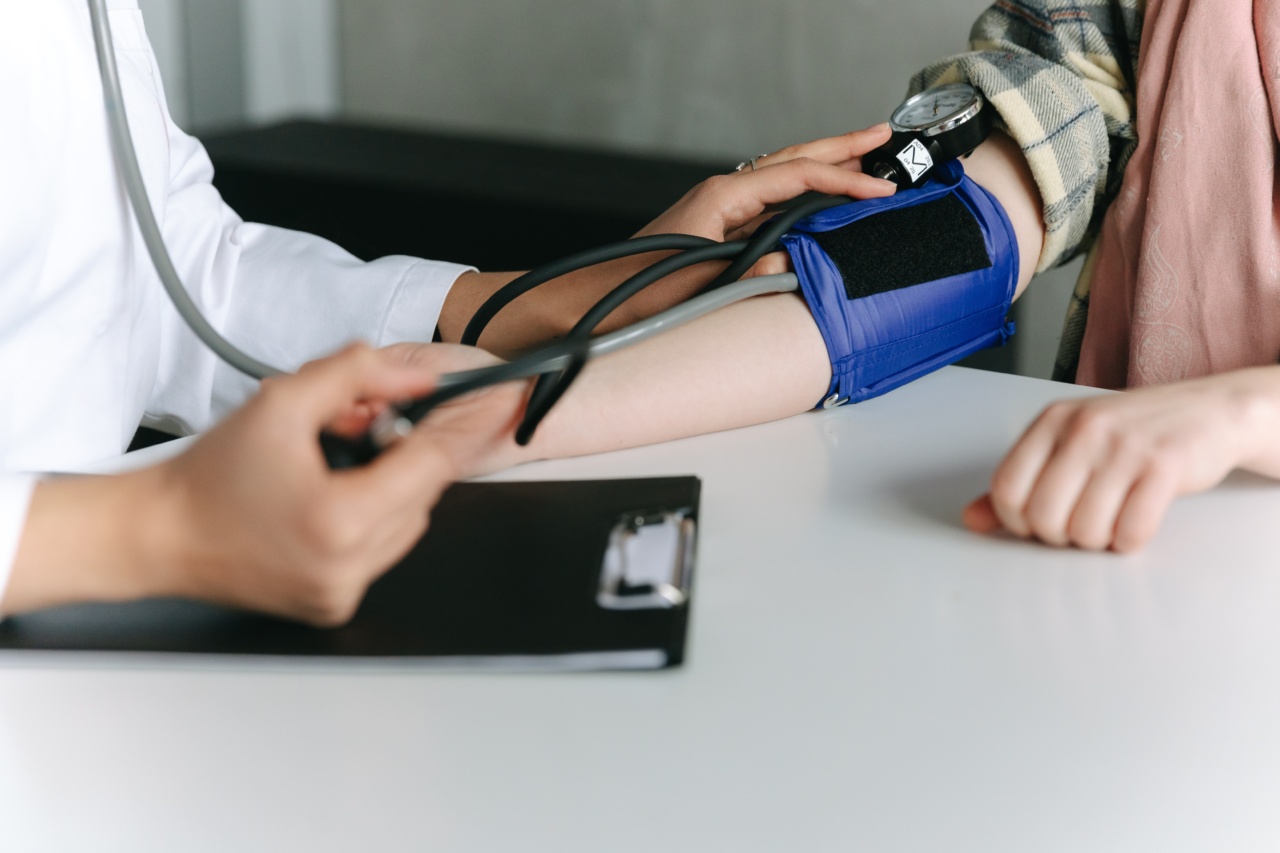Pulmonary Hypertension, also known as PH, is a rare lung disease that occurs when the blood pressure in the pulmonary arteries becomes higher than normal.
The pulmonary arteries are the blood vessels that carry blood from the right side of the heart to the lungs to pick up oxygen. PH can cause damage to the lungs, heart, and other organs in the body. In this article, we will discuss the causes and symptoms of pulmonary hypertension.
Causes of Pulmonary Hypertension
Pulmonary Hypertension can be caused by a variety of factors, including:.
1. Genetics
Some studies suggest that pulmonary hypertension can be caused by a genetic mutation. Certain genetic mutations can cause the blood vessels in the lungs to narrow, increasing the blood pressure in the pulmonary arteries.
2. Heart Diseases
Pulmonary hypertension can develop as a result of underlying heart diseases, such as left-sided heart disease or congenital heart disease.
When the heart is unable to pump blood effectively, it can cause the blood vessels in the lungs to become narrower, leading to PH.
3. Lung Diseases
Lung diseases such as chronic obstructive pulmonary disease (COPD), interstitial lung disease, and sleep apnea can cause pulmonary hypertension.
These diseases can damage the lungs and cause the blood vessels in the lungs to narrow, leading to high blood pressure in the pulmonary arteries.
4. Blood Clots
Pulmonary hypertension can also occur due to blood clots in the lungs. When a blood clot travels to the pulmonary arteries, it can cause the blood vessels to narrow and increase the blood pressure in the pulmonary arteries.
Symptoms of Pulmonary Hypertension
Pulmonary hypertension can often go undiagnosed because its symptoms can be mistaken for other medical conditions. Some of the common symptoms of PH include:.
1. Shortness of Breath
The most common symptom of pulmonary hypertension is shortness of breath, especially during physical activity. As the disease progresses, the shortness of breath may occur even during rest.
2. Fatigue
People with pulmonary hypertension may experience fatigue and weakness due to the increased workload of the heart and lungs.
3. Chest Pain
Chest pain may occur when the heart is struggling to pump blood through the narrowed blood vessels in the lungs.
4. Rapid Heartbeat
Pulmonary hypertension can cause the heart to beat faster than normal, especially during physical activity.
5. Swelling
PH can cause swelling in the legs, ankles, and feet due to fluid buildup in the body.
6. Bluish Lips and Skin
People with severe PH may have bluish lips and skin due to a lack of oxygen in the blood.
Conclusion
Pulmonary hypertension is a rare lung disease that can be caused by a variety of factors, including genetics, heart diseases, lung diseases, and blood clots.
Its symptoms can be mistaken for other medical conditions, but the most common symptoms include shortness of breath, fatigue, chest pain, rapid heartbeat, swelling, and bluish lips and skin. Early diagnosis and treatment of pulmonary hypertension are important to prevent further damage to the lungs, heart, and other organs in the body.





























